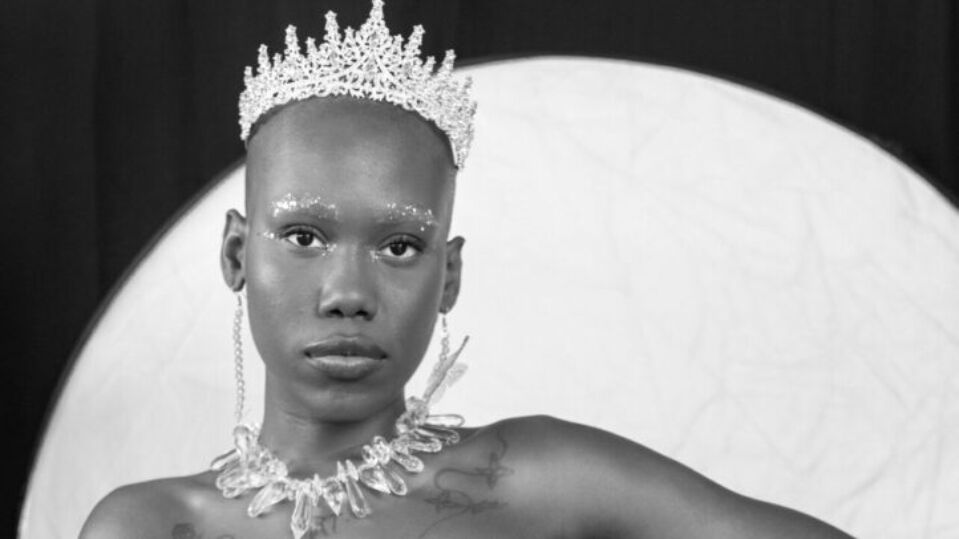In 2006, South Africa passed the Civil Union Bill. The legislation legalised same-sex marriage and civil partnership, making it the first country in Africa to do so. It was undeniably a victory for equality and progress, but for many LGBTQIA+ people, the reality was very different. Homophobic, transphobic and patriarchal violence remained widespread, with Black queer individuals from lower socio-economic backgrounds finding themselves at high risk of violent, often fatal, hate crimes. One distressing example is 21-year-old Motshidisi Pascalina, who in 2016 was murdered for her sexuality. Afterwards, Bontle Kahlo, from a local Pride group, told the BBC: “Women are less than men. If you’re a Black woman, you are even less, and if you’re a Black lesbian woman you are basically nothing in this country.”
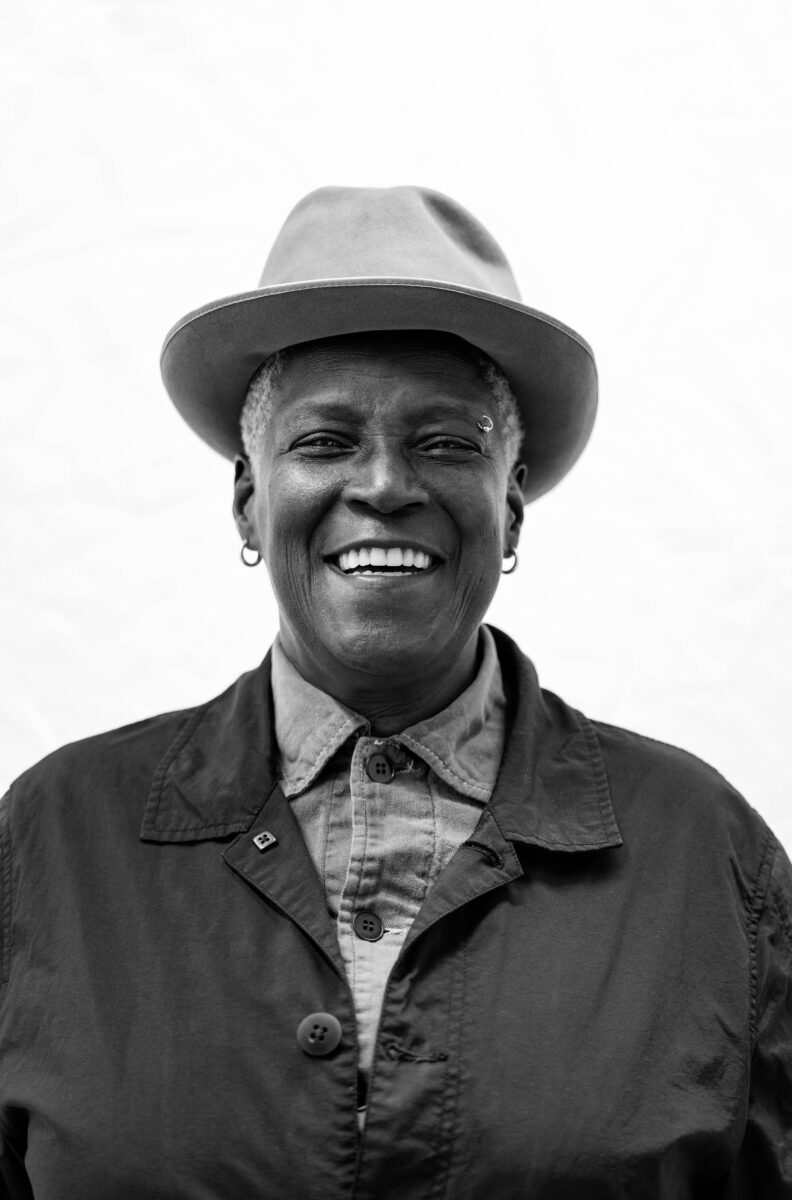
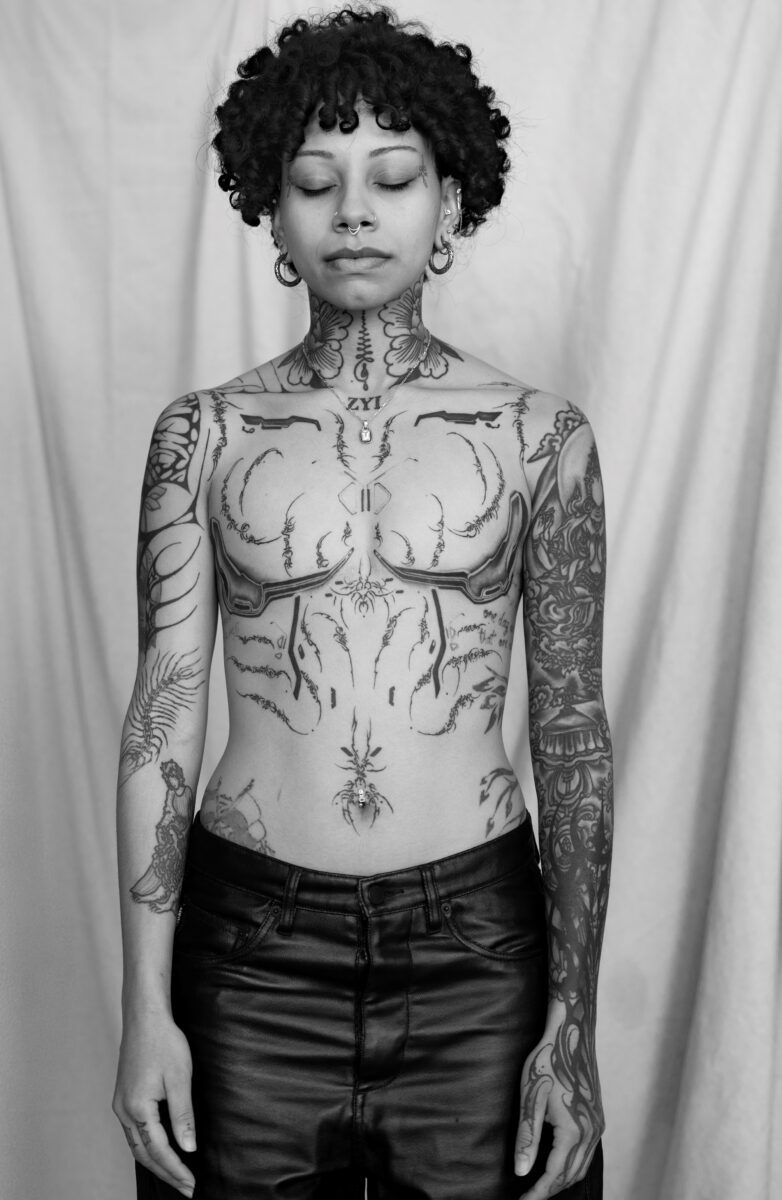
The same year that the Civil Union Bill came into effect, photographer Zanele Muholi (b. 1972) began to create Faces and Phases. The seminal project, inspired by both love and loss, documents the lives of Black lesbian, bisexual and queer women, and Trans and gender non-conforming people. In the face of the LGBTQIA+ community’s experience of collective grief – often exacerbated in the media by traumatising imagery or faceless statistics – Muholi sought to assert a counternarrative. Faces and Phases depicts Black lesbian life as beautiful, defiant and, crucially, normal. In the 19 years since its inception, the series has grown in size and reach, initially focusing on South Africa, before expanding to Brazil, Portugal, the UK and USA. The iconic body of work comprises a collection of close to 1,000 photographs, collectively forming a “living Queer archive.” It’s been exhibited extensively around the world, including at the South African Pavilion of the 2013 Venice Biennale, Tate Modern, London, and Yancey Richardson Gallery, New York. Now, Faces and Phases reaches new audiences at Southern Guild, Los Angeles.
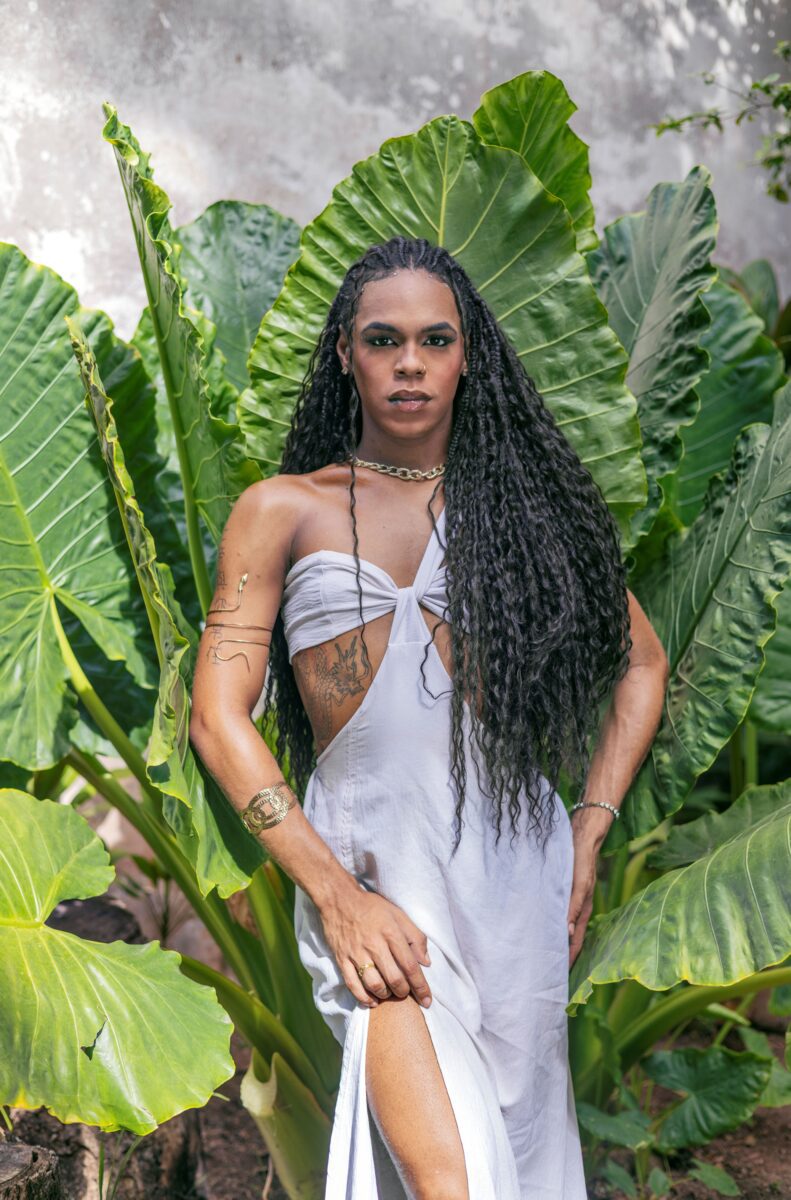
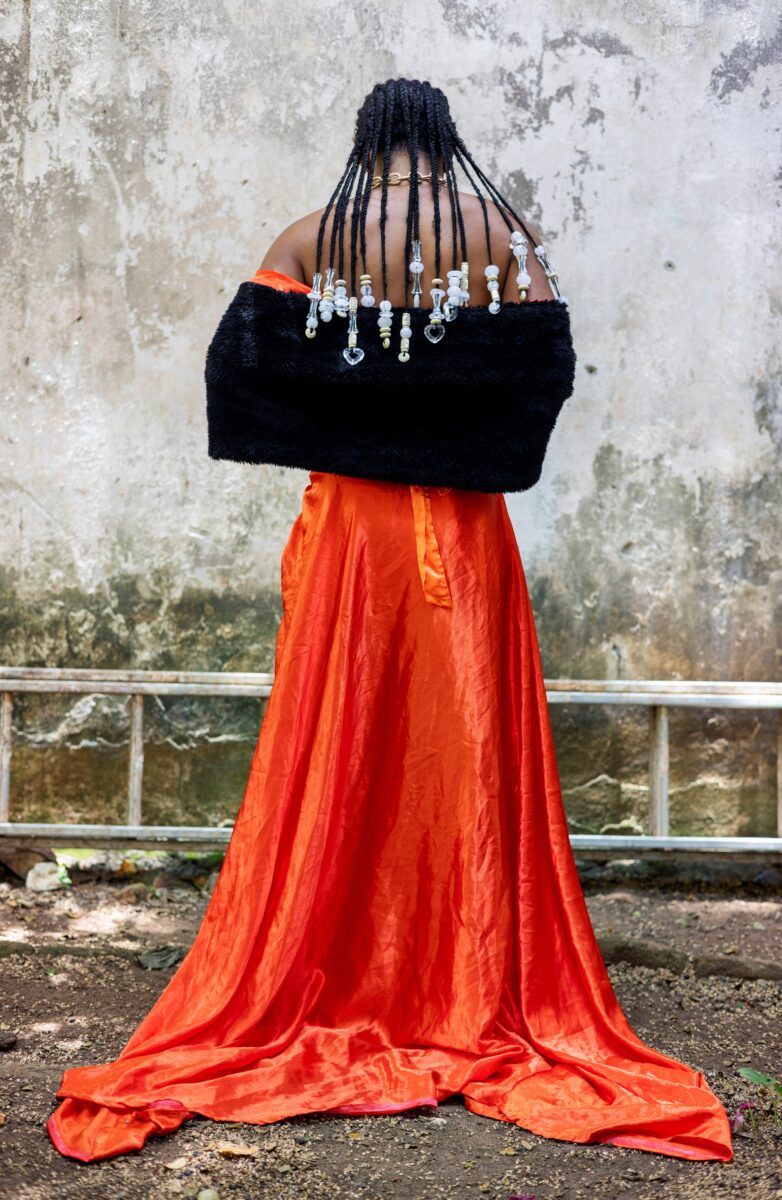
Muholi is one of the most acclaimed artists working today, describing themselves as a “visual activist.” For Muholi, art and advocacy are indistinguishable, and the camera is a tool for liberation. In the early series Only Half the Picture, the seeds of Faces and Phases were sewn. The images capture moments of love and intimacy, whilst alluding to traumatic events experienced by the subjects. In one, a bare leg shows a thick scar, whilst in another, titled Hate Crime Survivor II, a figure lies curled on a hospital bed. Other series include Brave Beauties, which celebrates empowered non-binary people and Trans women, and Being, a collection of tender portraits of couples. Muholi is a powerful, necessary voice in the ongoing pursuit of safety, equality and justice. In an interview with the Guardian, they said: “I think that’s true photography – to say you were present.” The statement gets to the heart of their practice. In their hands, images act as a living, evolving testament to what it means to move through the world as a queer person today.
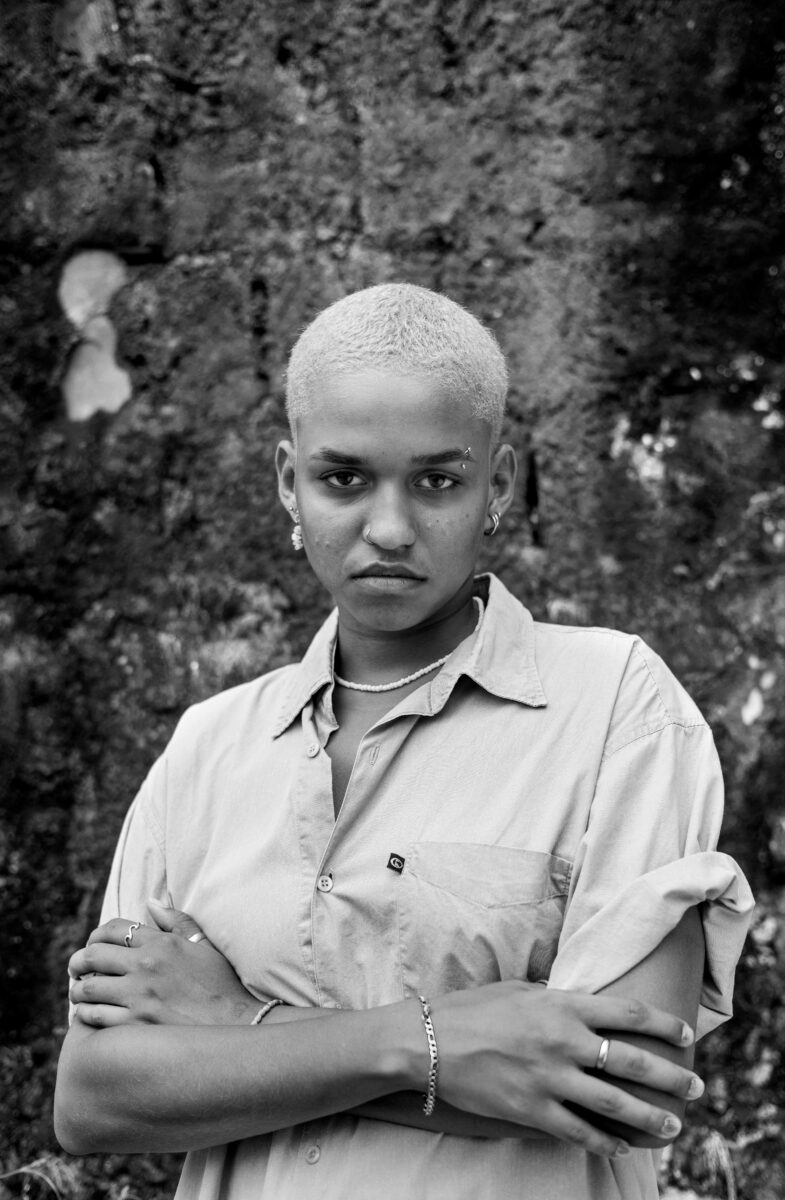
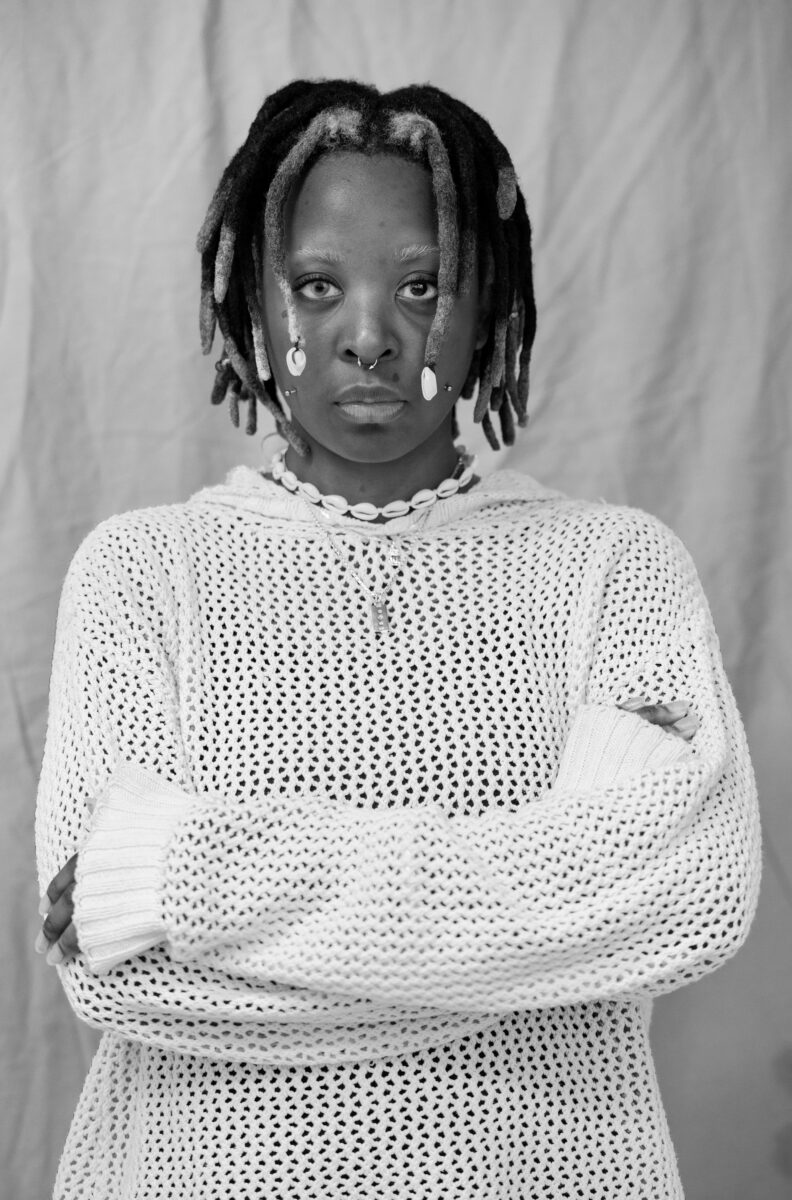
This legacy is palpable in Faces and Phases, a project many would consider Muholi’s magnum opus. Each image features one individual, who stares directly into the camera, meeting the eye of the viewer with confidence. Sakinah, a LA-based participant, finds freedom in the creative approach: “seeing someone else’s expression broadens your ability to be human.” Yet, the direct stares also echo both colonial archives and present-day prejudices. To exist as a Black, queer person in a society that uses their existence as a battleground for political and social wars is, in the words of Muholi, “like everyone is looking at you no matter what direction you take.” The subjects turn this gaze back on the world, challenging the audience to reflect on their own perspective and preconceived ideas of gender and sexuality.
The artist spends time building up a relationship with potential subjects, and the act of creation is also an emotional labour for Muholi. The artist lays the foundations for any photoshoot by interviewing and documenting testimonials, a process that shapes how, or even if, someone become part of the series. Listening is a central ethic and strategic part of their practice. Muholi also revisits and rephotographs people over the years, recording how time and the fluidity of identity can change how a person presents themselves. Individuals transition, their pronouns changing, sometimes along with their voices, muscle mass and facial hair. Faces and Phases does not pretend to “conclude” the impossible task of queer representation. Instead, it commits to remaining alive with the tensions of its community through continued engagement.
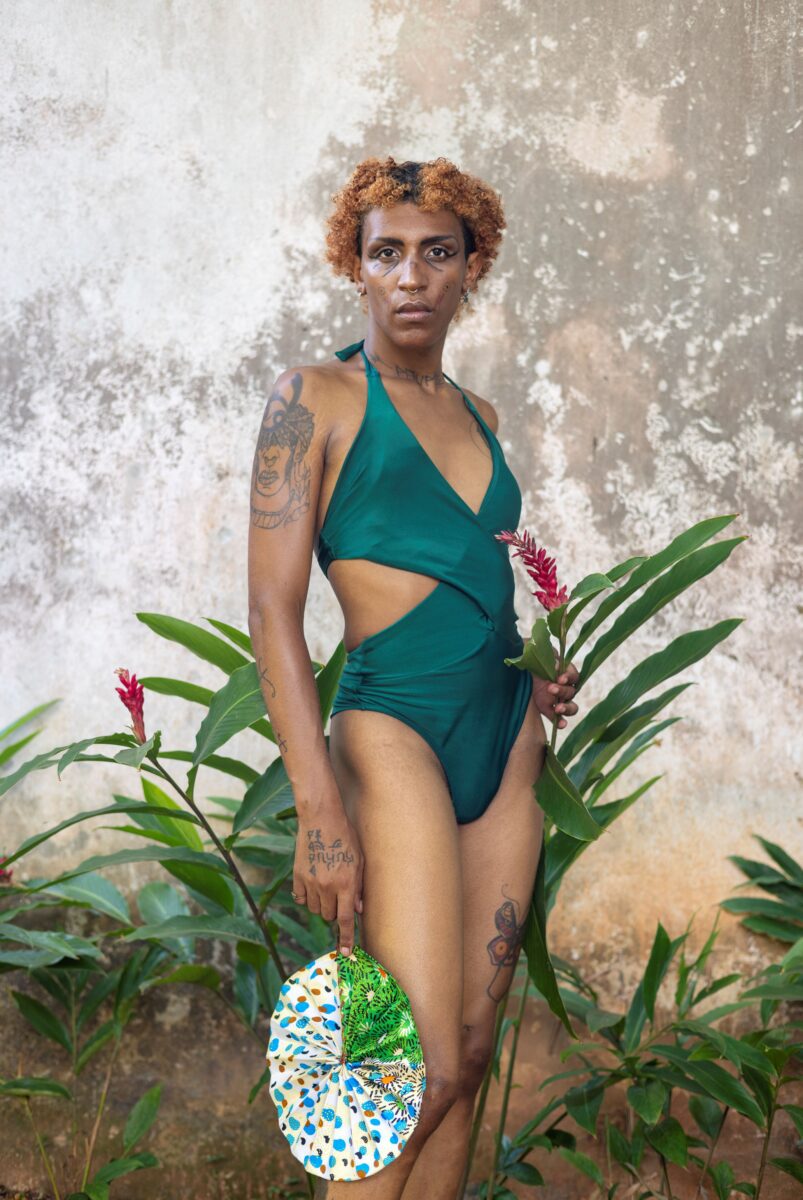

This current iteration is hosted in Los Angeles, in reaction to the current US administration, which, under the leadership of President Donald Trump, has systematically enacted measures to restrict Trans bodies. In the past five years, legislation aiming to stifle the rights of transgender people has been introduced in 49 of the 50 states. According to the London School of Economics, there have been 910 anti-transgender bills introduced so far in 2025, covering the right to use public restrooms, access to gender affirming healthcare, preferred pronouns and participation in sports. These moves have global consequences, including the withdrawal of funding from Global South initiatives that provide support and healthcare to LGBTQIA+ communities, including in South Africa. There is a bold and defiant energy in Faces and Phases, which prioritises the invitation, inclusion and celebration of all queer people.
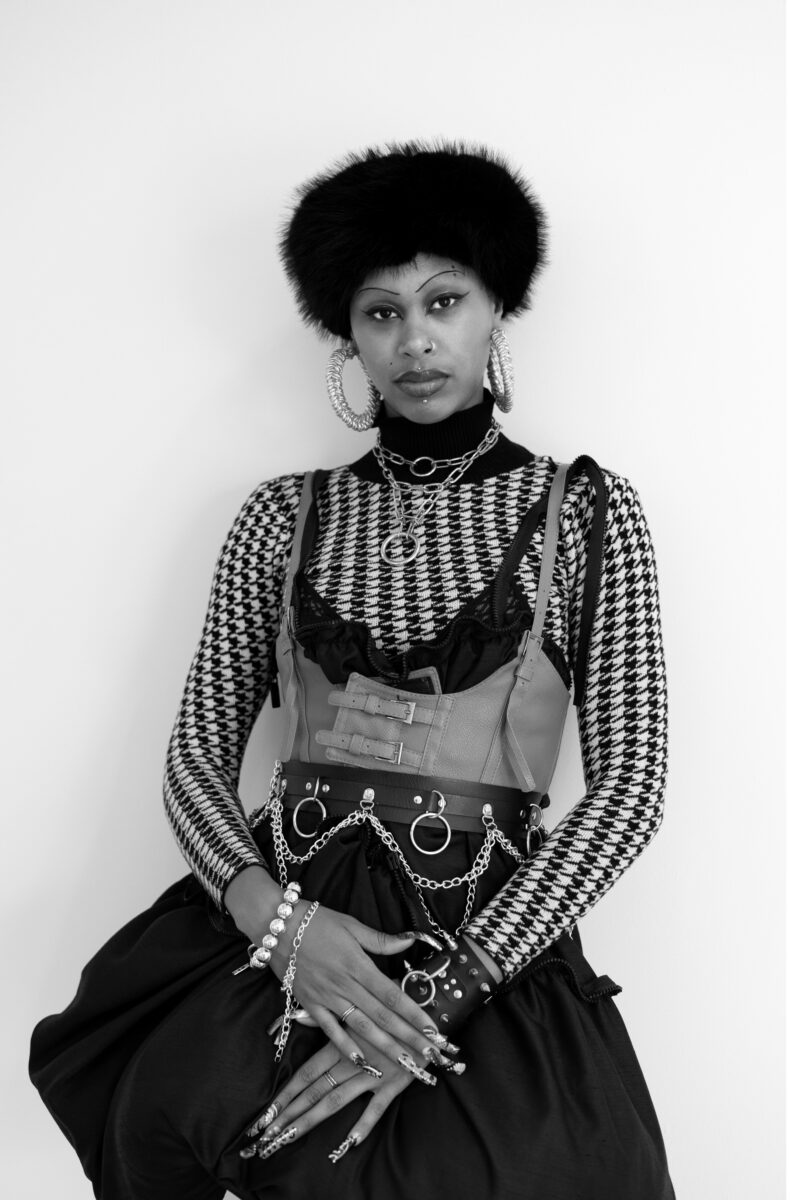
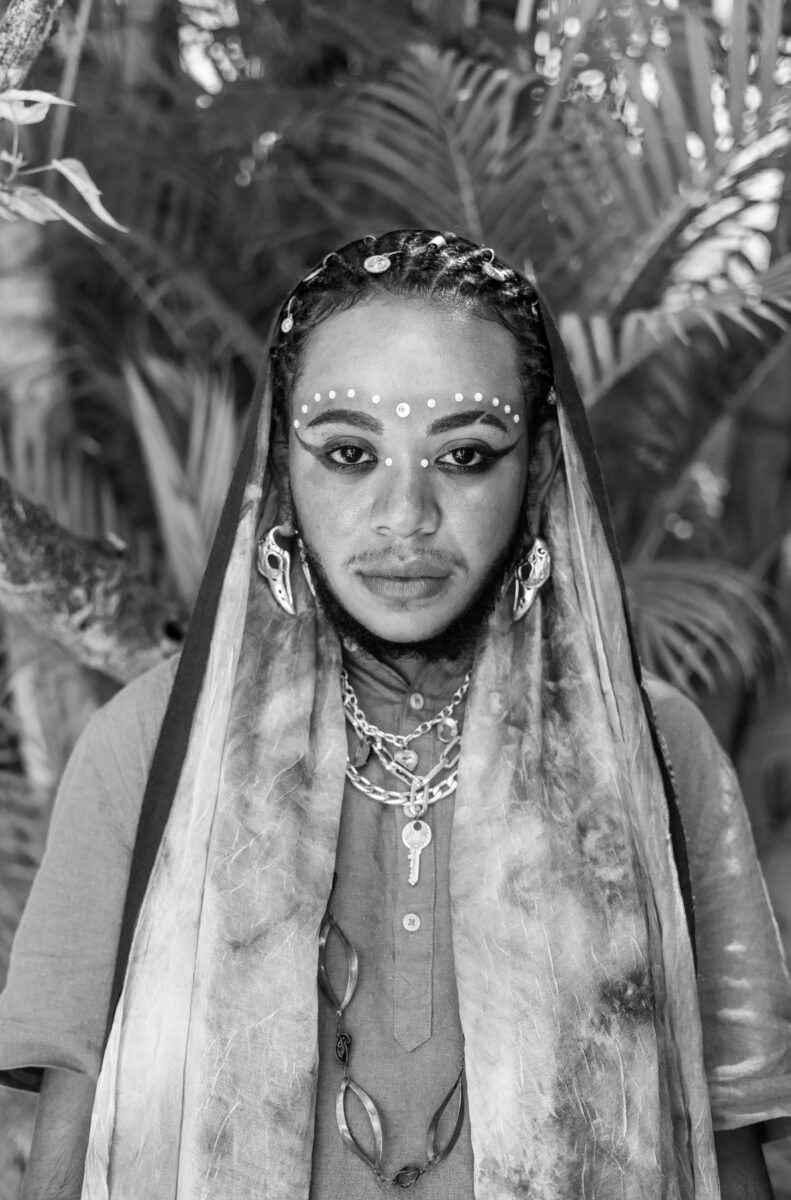
In its hundreds of portraits, Faces and Phases embraces every facet of LGBTQIA+ life. Muholi reckons with the dark, often traumatic realities of existing in a queer, Black body, confronting the viewer with a challenge: we must do better. Yet the series does not give in to despair, instead the artist offers their subjects the agency and dignity they deserve, acknowledging the fluidity of sexuality and identity. This is a story of queer love, queer joy and, most importantly, queer existence.
Zanele Muholi: Faces and Phases 19 is at Southern Guild, LA until 30 August: southernguild.com
Words: Emma Jacob
Image Credits:
2. Yvonne Taylor, London, 2024. Courtesy Zanele Muholi; Southern Guild, Cape Town/Los Angeles; and Yancey Richardson, New York. © Zanele Muholi.
3. Zyi Saenz, Los Angeles, 2024. Courtesy Zanele Muholi; Southern Guild, Cape Town/Los Angeles; and Yancey Richardson, New York. © Zanele Muholi.
4. Maria Victoria Costa Matos (‘Angelco’), Salvador, 2025. Courtesy Zanele Muholi; Southern Guild, Cape Town/Los Angeles; and Yancey Richardson, New York. © Zanele Muholi.
5. João Vitar Gomes de Souza (‘Vittor Adél’), Salvador, 2025. Courtesy Zanele Muholi; Southern Guild, Cape Town/Los Angeles; and Yancey Richardson, New York. © Zanele Muholi.
6. Samara Said Ferreira Rãgo, Casa de Cultura Marielle Franco, Salvador, 2025. Courtesy Zanele Muholi; Southern Guild, Cape Town/Los Angeles; and Yancey Richardson, New York. © Zanele Muholi.
7. Tia Sippin T Simon-Campbell, The Common Press, Lonndon, 2024. Courtesy Zanele Muholi; Southern Guild, Cape Town/Los Angeles; and Yancey Richardson, New York. © Zanele Muholi.
8. Kukua Dada do Carmo Rezende, Salvador, 2025. Courtesy Zanele Muholi; Southern Guild, Cape Town/Los Angeles; and Yancey Richardson, New York. © Zanele Muholi.
9. João Vitor Santos Gonceição (‘Roma’), Salvador, 2025. Courtesy Zanele Muholi; Southern Guild, Cape Town/Los Angeles; and Yancey Richardson, New York. © Zanele Muholi.
10. Tiara Kelly, Los Angeles, 2024. Courtesy Zanele Muholi; Southern Guild, Cape Town/Los Angeles; and Yancey Richardson, New York. © Zanele Muholi.
11. Dom (Viktor Dominik Yasser Figueiredo), Salvador, 2025. Courtesy Zanele Muholi; Southern Guild, Cape Town/Los Angeles; and Yancey Richardson, New York. © Zanele Muholi.


